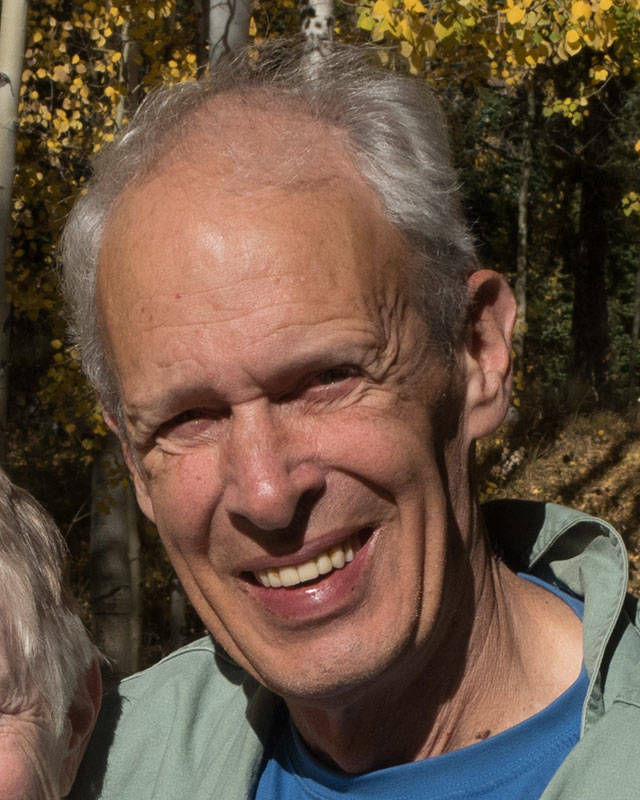Remember when climate change was described as a problem of the future? It was understandable that neither our federal government nor our state was taking decisive action to alleviate global warming. The harm seemed speculative, distant.
Now climate change is here. We can see the effects right on Vashon. This summer, we couldn’t see the Olympics for long stretches, not because of rain or clouds, but because of smoke from wildfires. In both 2017 and 2018, most of July and August were bad times to be in the mountains for hiking. As a hiker and backpacker, I’m just starting to grasp the reality that summer wildfires may mean that effectively, we’ve only got a hiking season that is about half as long as before. My wife and I drove to Mount St. Helens for a hike in early August but had to come home. St. Helens wasn’t visible, nor was Mount Adams, due to all the wildfire smoke.
On our fall ballots, Washington voters have a chance to do something about climate change. Initiative 1631 will impose a fee on large polluters, those who are putting a lot of carbon into the atmosphere. Carbon builds up in the atmosphere, creating a greenhouse effect, and leading to a warming world. The fee will be $15 per ton of carbon, rising gradually over time. The fees paid by polluters will be used for measures that will promote alternative energy and mitigate the damage to communities most affected by the pollution.
Vashon-Maury Audubon is supporting Initiative 1631, as is Audubon Washington. Audubon’s national scientists have shown that a warming climate is the number one threat to birds. Birds have evolved to live and breed within specific climate ranges. In response to a warming climate, more than 60 percent of North American birds have already shifted their wintering ranges northward. Soon they may have nowhere left to go.
According to National Audubon’s peer-reviewed science, more than 300 bird species in the continental U.S. and Canada will be at serious risk by 2080, including 92 species in Washington State. Imagine Vashon Island without bald eagles, ospreys, wigeon, goldeneye, western grebes, and even our numerous double-crested cormorants — all these birds are threatened by our warming climate.
The effects of our warming climate are of course a global problem, not just for us in the Northwest. For the world as a whole, 18 of the warmest years on record have occurred in this century. The problem is getting worse. The warmest four years ever in history are 2015, 2016, 2017 and 2018.
The effects of this warming are actually much more dramatic in other parts of the world than the Northwest. There are declining grain harvests, more damage from forest fires, more frequent and more intense hurricanes. Sea levels are projected to rise 1 to 4 feet by 2100. There are more frequent extreme heat days. Heat-related deaths are now more frequent than deaths from earthquakes, floods or other weather events. To read more detail about these effects, go to NASA’s website: climate.nasa.gov.
Meanwhile, we are not yet reducing global carbon emissions. Industrial carbon emissions in 2017 were at the highest levels ever. When carbon goes into the atmosphere, it takes hundreds of years to degrade. The carbon we are emitting now will warm the planet for our grandchildren and our grandchildren’s grandchildren.
Our current national administration is even trying to reverse recent progress on emissions control. For example, the Trump administration is planning to roll back the improved mileage standards for automobiles that were agreed to in 2011. They also recently repealed controls on some methane emissions. (Methane is an even more potent contributor to global warming than carbon.)
It’s not all gloom. Some nations are now implementing strong steps to reduce carbon emissions. We in Washington State have the chance to join them. We can become the first U.S. state to directly impose increased costs on the carbon emissions that lead to our warming climate. In so doing, we would be joining our neighbors in British Columbia, as well as Sweden, Switzerland, the United Kingdom, Ireland and several other nations.
The need to act is more urgent than ever. There is something that we can do about global warming: Act for the birds. Act for our grandchildren. Vote for Initiative 1631.
— Randy Smith is the conservation chair for Vashon- Maury Audubon.



